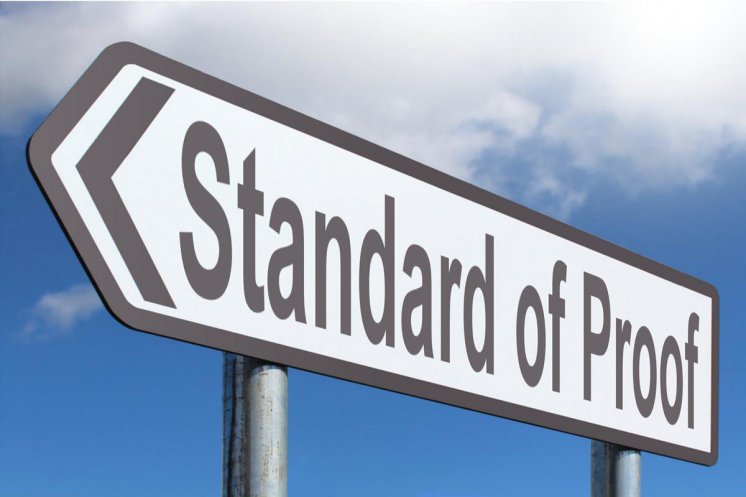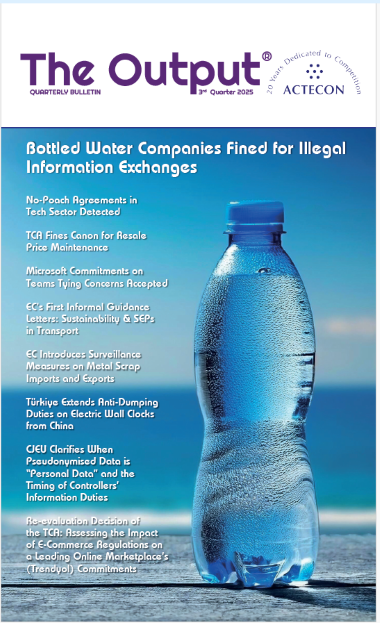The Role of Standard of Proof in Competition Law: Sahibinden.com Decision
| Competition Law

The Role of Standard of Proof in Competition Law: Sahibinden.com Decision
Article by Ayberk Kurt and Alper Karafil
The standard of proof plays a significant role during the process of the investigations performed within the framework of the competition law. However, no explicit provision regarding the standard of proof which shall be taken as basis in the preliminary and full-fledged investigations carried out within the scope of the Law of Turkey No. 4054 on the Protection of Competition ("Competition Law") is stipulated.
In February 2020, Ankara 6th Administrative Court (“Court”) published its decision[1] which annulled the Turkish Competition Authority’s (“TCA”) Sahibinden.com Decision[2] (“Sahibinden.com Decision”). Due to the reason that the intervention to the price level is an “exceptionally acceptable situation”, the Court concluded in its annulment decision (“Annulment Decision”) that the determinations and assessments made by the TCA should be clear and precise in a way not to cause any doubt and they should meet the standard of proof and these standards were not met in the Sahibinden.com Decision.
The Annulment Decision is important in demonstrating the Court’s perspective regarding the standard of proof which should be followed by the TCA.
Background of the Decision
The full-fledged investigation initiated into Sahibinden Bilgi Teknolojileri Paz. ve Tic. A.Ş. (“Sahibinden.com”) in 2017, in which the claims regarding excessive pricing has been evaluated, was noteworthy as it was the first example in the online platform market to examine excessive pricing claims. As a result of the investigation, the TCA concluded that Sahibinden.com was abusing its dominant position in the relevant markets through excessive pricing and decided to impose an administrative fine amounting to TRY 10,7 million (approx. EUR 1,9 million as of the Sahibinden.com Decision’s date of issue) on Sahibinden.com. Thereupon, Sahibinden.com filed an appeal with the Court requesting the annulment of Sahibinden.com Decision.
Annulment Decision
In the Annulment Decision, by referring to the United Brands judgement of the European Court of Justice, the Court evaluated the economic analysis performed by the TCA to determine the market power of Sahibinden.com. In the respective test named as the Economic Value Test (“EVT”), firstly, it is examined whether there is a high profit margin by comparing the cost and price of the product. Afterwards, a price comparison is made to determine whether the price of the product is unfair in itself or in comparison to the prices of competing products/services.
While making price/cost comparisons regarding the respective determinations, the Court acknowledged certain difficulties in calculating the cost, determining the cost criteria and the reasonable profit margin. These difficulties did not make it possible to exhibit the price-cost comparison objectively and accurately. During the investigation process, it was argued that almost all of the cost items of Sahibinden.com constituted a commonality in terms of services in the other advertisement categories of the undertaking. Accordingly, the TCA expressed that for this reason, it was not possible to perform the EVT and profitability analysis as described above.
In this regard, the Court pointed out that before the TCA intervenes in the market price, as an “exceptional situation”, excessive pricing behavior should be demonstrated with data and facts beyond reasonable doubt in order to evaluate the precision of the examinations and the intervention decisions to be taken as a result of it. In terms of the threshold of proof that evidence concerning disputes related to competition law should reach, the standard of proof is sought by the Council of State mostly in the form of 'proof with clear and hard evidence that is far from any doubts' in cases filed against sanctions imposed by the TCA.
The second and essential issue subjected to the Court’s examination was whether the evidence meets the standard of proof mentioned above, which constituted a basis for the Sahibinden.com Decision.
The Court indicated that although in Sahibinden.com Decision, the TCA stated that in the second stage where price comparison is discussed, the price of the product/service should be compared both with the undertaking’s own price and the prices of competing undertakings. However, when the entire decision is examined, the Court determined that the concerned comparison is made with undertakings operating in different and unsuitable markets, as well as that price comparisons have not been made in different geographies and especially with countries harboring global players. It is also expressed that the determinations stating that “The platform, which is advantageous in terms of market share, is expected to dominate the market in the long term, even if the difference between the market shares is not high due to the network effect and the cost of existing in more than one platform. This situation is also observed in the present case.” are based on observation and do not contain tangible data.
In Sahibinden.com Decision, the TCA indicated that Sahibinden.com increased its platform value since it offered a portfolio consisting of various service categories, and therefore, it increased the number of visits comparing to its competitors. Accordingly, this lead to an increase in platform values for corporate customers and made its substitution more difficult. The Court emphasized that the working model of a platform and its commercial consequences cannot be associated with abuse of dominant position. The Court concluded that in order to make such determination, the existence of comprehensive and scientific consumer behavior analysis related to end-consumer behavior is essential. However, no such study was found in the investigation file forming the basis for the Sahibinden.com Decision.
With respect to calculation of the margin between the prices and costs, the TCA considered that Sahibinden.com’s organizational structure and form of business conduct within the context of operating expenses are not suitable for calculating the expenditures made on the basis of categories of the usage functions and qualifications of the products and licenses purchased on the basis of capital expenditures. The Court in return expressed that it is clear that the margin between prices and costs could not be determined by the TCA.I Instead, the TCA made its evaluation via the comparisons by means of not making cost analysis suitable for excessive price determination.
Hence, the discounted prices offered by Sahibinden.com to different customer groups at different times were important for determining whether the pricing was excessive or not. Hereat, the Court considered that it was not appropriate for the TCA to bear legal consequences from this comparison, which was stated to be difficult, by depending upon the 'comparison difficulty' without demonstrating the discounted and standard prices (without discount) perceptibly. For this reason, the Court concluded that the TCA depended only upon the observations and could not ground its determinations based on data specifying a certain opinion.
Another important issue that needs to be proved is whether excessive pricing has an effect hampering the entries to the market and restricting the competition accordingly. The Court indicated that in case of an intervention to the excessive pricing, such intervention could be possible only if it can be demonstrated with certain date that the intervention to the excessive pricing will have positive outcomes. However, no determinations have been made by the TCA in terms of how the decrease in the prices of the platform that is in the dominant position will facilitate new entries into the market, and how new actors who are already content oneself with low membership fees will compete against these low pricing.
Ultimately, the Court expressed that in Sahibinden.com’s platform, only corporate customers pay a certain membership fee, while individual users and consumers are not obliged to pay any fee for benefiting from the respective platform. Hence, the Court concluded that although the TCA was obliged to investigate whether lowering the respective fees will result in fees being charged from individual customers and what effects they may have on the welfare of individual users in the medium and long term in such a system, the TCA’s evaluation which is performed based on the welfare of only one group of consumers is deficient.
Due to the reason that the intervention to the price level is an “exceptionally acceptable situation”, as ruled by the Court, the determinations and assessments should also be clear and precise in a way not to cause any hesitation and they should “almost certainly prove what happened” as a requirement of the standard of proof. Accordingly, the it would be legally insufficient to come to a conclusion based on suspicion. The Court decided to annul Sahibinden.com Decision in which administrative fine was imposed on Sahibinden.com. As per justification of the decision, the Court indicated that the respective matter of facts, claims and determinations in Sahibinden.com Decision did not have the specified qualifications and the decision was made by concluding based on observations, without relying on tangible evidences obtained precisely and undisputedly.
Conclusion
The Annulment Decision of the Court is an important precedent in Turkish law in terms of the standard of proof to be based on in the preliminary and full-fledged investigations carried out within the scope of the Competition Law. Accordingly, this decision is expected to reveal positive outcomes in terms of higher standards of proof in Turkish competition law and precedents especially with regard to investigations on competition violations.






